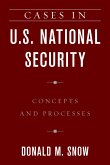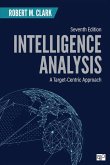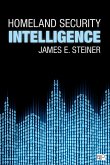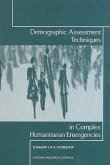Randolph H Pherson, Sarah Miller Beebe
Bundle: Pherson, Structured Analytic Techniques for Intelligence Analysis, 3e + Beebe, Cases in Intelligence Analysis, 2e
Randolph H Pherson, Sarah Miller Beebe
Bundle: Pherson, Structured Analytic Techniques for Intelligence Analysis, 3e + Beebe, Cases in Intelligence Analysis, 2e
- Broschiertes Buch
- Merkliste
- Auf die Merkliste
- Bewerten Bewerten
- Teilen
- Produkt teilen
- Produkterinnerung
- Produkterinnerung
This bundle includes Randolph H. Pherson′s Structured Analytic Techniques for Intelligence Analysis, 3e and Sarah Beebe′s Cases in Intelligence Analysis, 2e
Andere Kunden interessierten sich auch für
![Contemporary Cases in U.S. Foreign Policy Contemporary Cases in U.S. Foreign Policy]() Contemporary Cases in U.S. Foreign Policy89,99 €
Contemporary Cases in U.S. Foreign Policy89,99 €![Cases in U.S. National Security Cases in U.S. National Security]() Donald M SnowCases in U.S. National Security41,99 €
Donald M SnowCases in U.S. National Security41,99 €![Intelligence Analysis Intelligence Analysis]() Robert M ClarkIntelligence Analysis159,99 €
Robert M ClarkIntelligence Analysis159,99 €![Homeland Security Intelligence Homeland Security Intelligence]() James E SteinerHomeland Security Intelligence144,99 €
James E SteinerHomeland Security Intelligence144,99 €![Human Rights and the Arab Spring: The Cases of Tunisia and Egypt (St. James's Studies in World Affairs) Human Rights and the Arab Spring: The Cases of Tunisia and Egypt (St. James's Studies in World Affairs)]() Bachar El-HalabiHuman Rights and the Arab Spring: The Cases of Tunisia and Egypt (St. James's Studies in World Affairs)31,99 €
Bachar El-HalabiHuman Rights and the Arab Spring: The Cases of Tunisia and Egypt (St. James's Studies in World Affairs)31,99 €![Demographic Assessment Techniques in Complex Humanitarian Emergencies Demographic Assessment Techniques in Complex Humanitarian Emergencies]() National Research CouncilDemographic Assessment Techniques in Complex Humanitarian Emergencies21,99 €
National Research CouncilDemographic Assessment Techniques in Complex Humanitarian Emergencies21,99 €![Governors of Colonies [microform]: Their Claim in Certain Cases to Retiring Allowances Governors of Colonies [microform]: Their Claim in Certain Cases to Retiring Allowances]() AnonymousGovernors of Colonies [microform]: Their Claim in Certain Cases to Retiring Allowances14,99 €
AnonymousGovernors of Colonies [microform]: Their Claim in Certain Cases to Retiring Allowances14,99 €-
-
-
This bundle includes Randolph H. Pherson′s Structured Analytic Techniques for Intelligence Analysis, 3e and Sarah Beebe′s Cases in Intelligence Analysis, 2e
Produktdetails
- Produktdetails
- Verlag: Sage Publications
- 2nd edition
- Erscheinungstermin: 4. Juni 2020
- Englisch
- Abmessung: 225mm x 198mm x 52mm
- Gewicht: 1230g
- ISBN-13: 9781071829134
- ISBN-10: 1071829130
- Artikelnr.: 63058083
- Herstellerkennzeichnung
- Libri GmbH
- Europaallee 1
- 36244 Bad Hersfeld
- gpsr@libri.de
- Verlag: Sage Publications
- 2nd edition
- Erscheinungstermin: 4. Juni 2020
- Englisch
- Abmessung: 225mm x 198mm x 52mm
- Gewicht: 1230g
- ISBN-13: 9781071829134
- ISBN-10: 1071829130
- Artikelnr.: 63058083
- Herstellerkennzeichnung
- Libri GmbH
- Europaallee 1
- 36244 Bad Hersfeld
- gpsr@libri.de
Randolph H. Pherson is president of Pherson Associates, LLC; CEO of Globalytica, LLC; and a founding director of the nonprofit Forum Foundation for Analytic Excellence. He teaches advanced analytic techniques and critical thinking skills to analysts in the government and private sector. Mr. Pherson collaborated with Richards Heuer Jr. in developing and launching use of Analysis of Competing Hypotheses, and he developed several analytic techniques for the CIA's Sherman Kent School, many of which were incorporated in his Handbook of Analytic Tools and Techniques. He coauthored Critical Thinking for Strategic Intelligence with Katherine Hibbs Pherson, Cases in Intelligence Analysis: Structured Analytic Techniques in Action with Sarah Miller Beebe, and several other guides for analysts on writing, briefing, indicators, and managing the production process. Mr. Pherson completed a twenty-eight-year career in the Intelligence Community in 2000, last serving as National Intelligence Officer (NIO) for Latin America. Previously at the CIA, Mr. Pherson managed the production of intelligence analysis on topics ranging from global instability to Latin America, served on the Inspector General's staff, and was chief of the CIA's Strategic Planning and Management Staff. He is the recipient of the Distinguished Intelligence Medal for his service as NIO and the Distinguished Career Intelligence Medal. Mr. Pherson received his B.A. from Dartmouth College and an M.A. in international relations from Yale University. Sarah Miller Beebe began thinking about a book of cases during her career as an analyst and manager at the Central Intelligence Agency. A variety of broadening experiences, including an assignment as director for Russia on the National Security Council staff and a position as a national counterintelligence officer at the Office of the National Counterintelligence Executive, drove home the need for rigorous and effective approaches to intelligence analysis. It became apparent to her that cases could not only teach important analytic lessons surrounding historical events but also give analysts experience using a question-based thinking approach underpinned by practical techniques to improve their analyses. Now, as owner of Ascendant Analytics, she helps organizations apply such techniques against their specific analytic problems.








![Governors of Colonies [microform]: Their Claim in Certain Cases to Retiring Allowances Governors of Colonies [microform]: Their Claim in Certain Cases to Retiring Allowances](https://bilder.buecher.de/produkte/66/66199/66199904m.jpg)